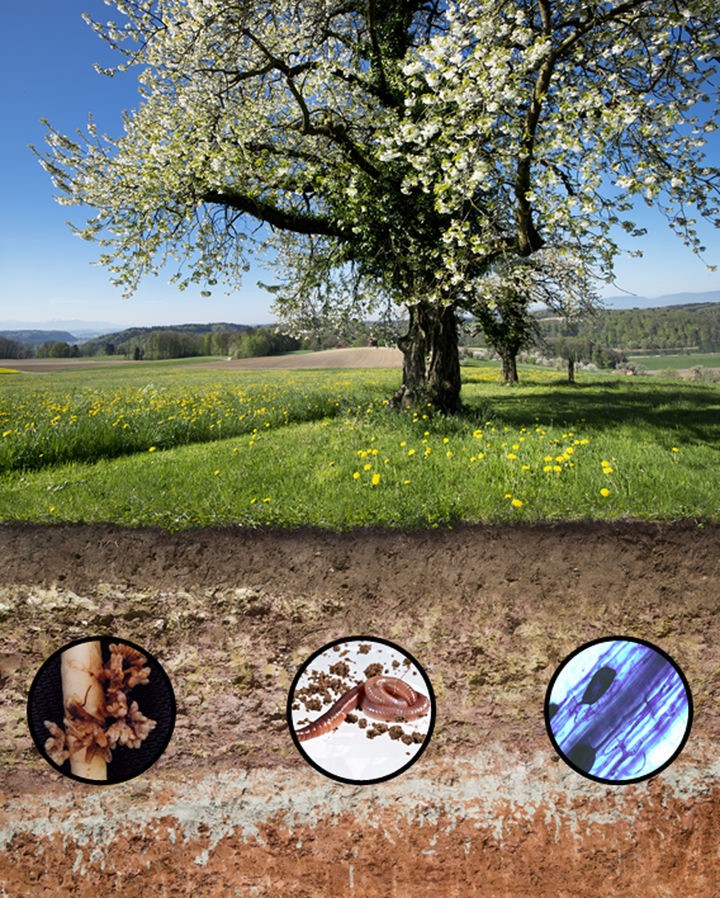Prof. Marcel van der Heijden - Agroecology and Plant-Microbiome Interactions
|
Our research bridges “Agroecology” and “Plant-Microbiome-Interactions”. We investigate agro-ecosystems and crops and study how plant microbiomes, mycorrhizal fungi and soil biodiversity influence plant growth and ecosystem functioning. Our aim is to develop sustainable agro-ecosystems that are environmentally friendly and productive. The research in our group is a collaboration between the University of Zurich and Agroscope, the Swiss centre of excellence for agricultural research.
|
|
Key questions that we study include:
- What is the role of soil micro-organisms and plant microbiomes in determining plant growth and ecosystem functioning?
- What is the ecological significance of mycorrhizal fungi and mycorrhizal diversity and is it possible to promote plant yield by introducing or promoting beneficial mycorrhizal fungi in the field.
- How do microbiomes function and is there a link between microbiome richness and composition with plant growth and ecosystem multifunctionality.
- Is it possible to use soil ecological engineering and microbiome management to improve the sustainability and productivity of agro-ecosystems.
- What is the impact of agricultural management (organic, conservation and conventional agriculture, pesticides) on soil life, soil biodiversity and ecosystem services delivered by soil biota.
- What is the agronomic, ecological and environmental performance of the main Swiss/European farming systems.
Further information and an introduction is given in the “research section.
Agroecology and Plant-Microbiome Interactions: We investigate how soil microorganisms such as mycorrhizal fungi (right), nitrogen fixing bacteria (left), earthworms (middle) and a wide range of other microbes influence plant growth and ecosystem functioning. Photo © Agroscope (Gabriela Brändle, Urs Zihlmann) and LANAT (Andreas Chervet).

